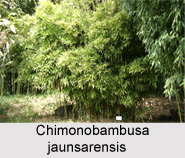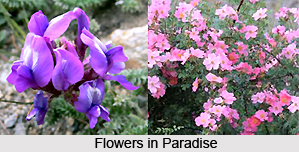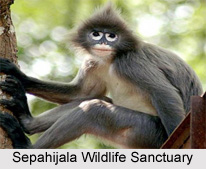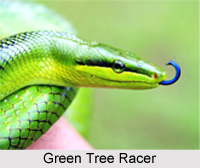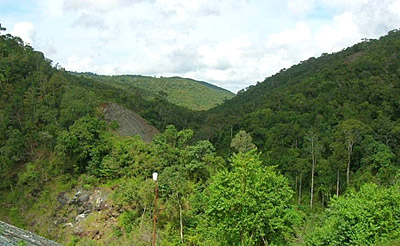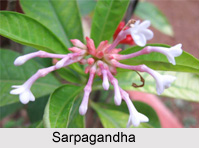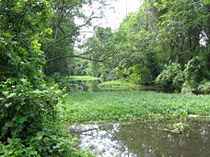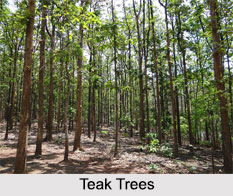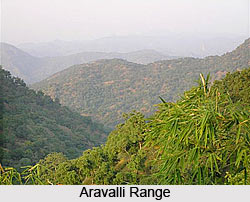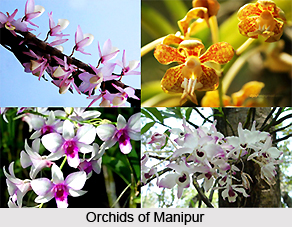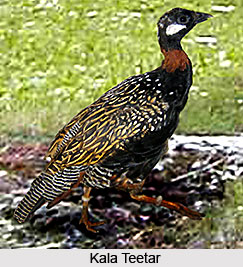 Kuno Wildlife Sanctuary is located in the Sheopur district of North-West Madhya Pradesh. This wildlife sanctuary is spread over an area of about 344.686 square kilometers out of which 313.984 square kilometres of area is covered by forest and 30.702 square kilometres of area is revenue land in the Sheopur and Vijapur tehsils of the district of Sheopur in Madhya Pradesh. It is fifteen kilometres away from the Sesaipura bus stand on Shivpuri-Sheopur road. This sanctuary can be approached by taxi or bus from the Sesaipura bus stand. It can also be approached from Pohari of Shivpuri district, which is at a distance of twenty five kilometres from this wildlife sanctuary. The Kuno Wildlife Sanctuary is situated in an isolated hill, sloping in all directions. The average rainfall received by this area is seven hundred and fifty millimetre per year. The maximum temperature goes up to forty nine degree Celsius and the minimum temperature recorded at this place is two degree Celsius.
Kuno Wildlife Sanctuary is located in the Sheopur district of North-West Madhya Pradesh. This wildlife sanctuary is spread over an area of about 344.686 square kilometers out of which 313.984 square kilometres of area is covered by forest and 30.702 square kilometres of area is revenue land in the Sheopur and Vijapur tehsils of the district of Sheopur in Madhya Pradesh. It is fifteen kilometres away from the Sesaipura bus stand on Shivpuri-Sheopur road. This sanctuary can be approached by taxi or bus from the Sesaipura bus stand. It can also be approached from Pohari of Shivpuri district, which is at a distance of twenty five kilometres from this wildlife sanctuary. The Kuno Wildlife Sanctuary is situated in an isolated hill, sloping in all directions. The average rainfall received by this area is seven hundred and fifty millimetre per year. The maximum temperature goes up to forty nine degree Celsius and the minimum temperature recorded at this place is two degree Celsius.
The general physiography of the terrain is hilly and it comes under the Vindhya series. This sanctuary falls in the semi-arid zone and has a typical terrain of Central Indian highlands, interspersed with meadows and woodlands. The soil is sandy and sandy-loam, depicting a spatial variation in depth. River kuno, a tributary of Chambal River, bisects the sanctuary vertically from north to south. It covers an area of 5.90 square kilometers in the sanctuary. A number of major nallahs like Kudikheda, Lankahkhoh, Durredi, Aamkhoh, etc., originate from the gorges situated on the west, join river Kuno. Similarly, the Dabhona nallah, Naharkunda nallah, Gangoli nallah etc. originate from the eastern khohs and meet the Kuno River at diverse sites.
All the faunal representatives belonging to the dry deciduous forest of Central India can be seen in the Kuno Wildlife Sanctuary i.e. Panther, Chital, Tiger, Sambhar, Chinkara, Black Deer, Bear, Chausingha, Jungle cat, Blue bull, Barking Deer, Jackals, Hyena, Monkey, Wild Boar, Kobra, Nag, Fox, Python, Kala Teetar, Tree pie, Peacock, Golden Orioles, Rollers, Jangli, Drongo, murgi, Phakta, Teetar, Bhura, etc. This sanctuary consists of dry deciduous forests interspersed with grasslands. The trees found here are Kardhai, Gurjan, Kusum, Kher, Guner, Haldoo, Mahua, Kullu, Semal, Bahera, Kahua, Tendu, Harsingar, Bel, Chind, Palas, Anwala, Satawar, etc.
The Kuno Wildlife Sanctuary is very conveniently located at Vijaypur and Sheopur tehsils in the district of Sheopur district. The Sesaipura bus stand on Shivpuri-Sheopur road is just fifteen kilometers from this Sanctuary. This Sanctuary can also be reached by taxi or bus from the bus stand at Sesaipura. The nearest railway station to this sanctuary is at Shivpuri district which is fifty five kilometres away and at Sheopur which is seventy five kilometers away and the nearest airport to the Kuno Wildlife Sanctuary is at Gwalior which is one hundred and forty five kilometres away. There are also suitable accommodations available close to the sanctuary for the visiting tourists.
